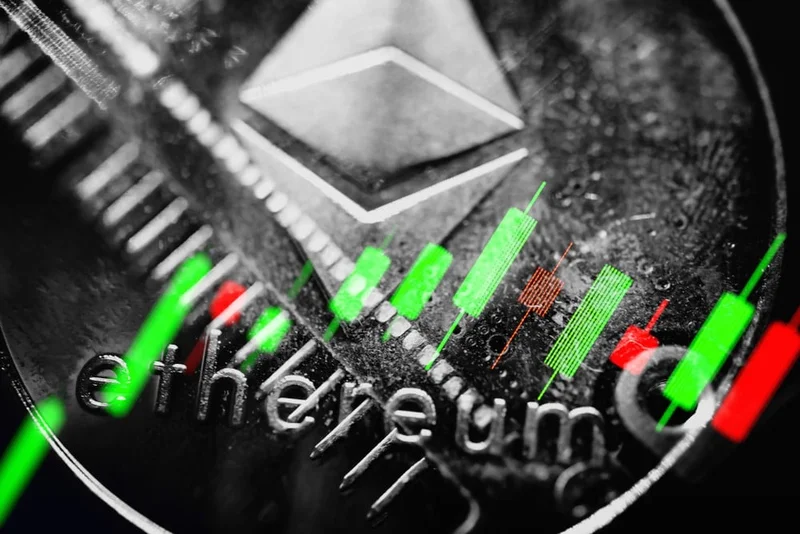In the chaotic carnival of crypto markets, a price plunge often grabs the headlines. Bitcoin dipping below $100,000, dragging ethereum and its smaller brethren down with it, certainly makes for dramatic reading. Analysts, as they always do, will point to liquidity shifts or macro winds. But if you’re only looking at the charts, you’re missing the real story, the one being whispered in the digital corridors and, more recently, shouted from a conference stage. We’re facing threats far more fundamental than a temporary market correction.
Let’s be precise here. The market has seen a sharp drop over the last month, shedding significant value across the board. While many are bracing for a potential $1 trillion market crash, my analysis suggests that the true existential threats aren't about today's bottom line; they're about tomorrow's very definition of "crypto."
Vitalik Buterin, the ethereum cofounder and, let’s be honest, the closest thing the network has to a spiritual leader, recently dropped a pair of warnings that should make every true believer sit up straighter. First, the specter of quantum computing. “Elliptic curves are going to die,” Buterin declared during the Buenos Aires Devconnect conference. This isn’t hyperbole. Shor’s algorithm on a fault-tolerant quantum computer could, in theory, crack the encryption that underpins bitcoin and ethereum. Experts like Scott Aaronson and Nic Carter are ringing the alarm bells, with some suggesting this could happen before the next U.S. presidential election in 2028, or at least by 2030. It’s a technical doomsday clock, ticking away, demanding a "fork" to stronger cryptography.
But quantum is a future problem, a storm on the distant horizon. The second warning from Buterin, delivered just days later, feels far more insidious because it’s a present-day corrosion. He pointed directly at Wall Street behemoths like BlackRock, a concern detailed in Ethereum Cofounder Issues Stark BlackRock Warning That Could Spell Disaster For Bitcoin Amid Sudden Price Sell-Off. When asked how to avoid "capture" by these giants, Buterin didn’t mince words. He fears that as institutions expand their ethereum holdings—BlackRock’s flagship ethereum ETF already holds $10 billion, and they just registered a staked ethereum fund in Delaware (a clear signal of intent)—the network risks centralization.

This is where the rubber meets the road. Crypto was born from a desire for decentralization, for global, permissionless, and censorship-resistant protocols. If base-layer choices start to be optimized for institutional players, if running a node becomes harder for regular users, then what exactly are we building? Buterin’s concern isn't just a philosophical quibble; it’s a direct challenge to the very ethos of the movement. He warns, "It easily drives other people away."
This institutional encroachment isn't a sudden, cataclysmic event like a quantum attack; it's more like a slow, inexorable tide. Think of it as a corporate leviathan slowly but surely swallowing the digital ocean. It’s not destroying the network outright, but it’s subtly changing its chemical composition, making it less hospitable to the very organisms it was designed to nurture. What happens when the largest holders and stakers are a handful of financial titans, wielding immense power over governance and upgrades? Does "decentralization" become a nostalgic buzzword rather than a lived reality?
And this is the part of the report that I find genuinely puzzling: the almost indifferent acceptance of this institutional embrace. We’ve seen the narrative shift from "banks are evil" to "institutional validation is key." But at what cost? We need to ask ourselves: are we trading the soul of crypto for a seat at the big kids' table? What metrics, beyond market cap, are we using to quantify the health of decentralization? Are we even collecting that data, or are we too busy cheering on the latest ETF filing?
Let's be clear: the quantum threat is real, and it demands serious attention from developers. "We don’t need to panic, but we need to get serious," as Alex Pruden of Project 11 put it. But the BlackRock phenomenon, the institutionalization of what was supposed to be a revolution, is happening now. It’s not a future possibility; it’s a present-day reality, quantifiable by billions in AUM. This isn't just about market cycles; it's about the fundamental identity of crypto. If the "flood gates" are truly opening, as some analysts claim, we need to consider what kind of water is rushing in. Is it a refreshing wave of adoption, or is it a deluge that threatens to drown the very principles we sought to uphold?
The market might recover, but the quiet, creeping centralization driven by institutional behemoths like BlackRock poses a more immediate and insidious threat to crypto's foundational spirit than any distant quantum computer. We’re not just watching prices; we’re watching a philosophical battle unfold, and the data suggests the original vision is taking a beating.